Há muitos debates sobre o que é noir.
O noir é um movimento ou um gênero? Sendo movimento, significa que filmes de
qualquer gênero podem ser considerados noir? Sendo gênero, o noir pode
coexistir com outros gêneros? O que eu quero dizer é: pode haver comédia noir?
E que tal musical noir? Bem, eu não consigo pensar em uma só comédia noir que não
seja “Cliente Morto Não Paga” (1982), mas eu posso citar dois musicais que têm
elementos noir.
There is a lot of debate about what is noir. Is
noir a movement or a genre? As a movement, does this mean that films from any
genre can be noir? As a genre, can noir co-exist with other genres? What I want
to say is: can a comedy be noir? What about a musical? Well, I can’t think
about a noir comedy other than the spoof “Dead Men Don’t Wear Plaid”, from
1982, but I can think of two musicals that have noir elements in them.
O musical com mais elementos noir tem
como estrelas uma garota que deixou Hollywood para se tornar freira, uma atriz
que interpretaria Morticia Adams na TV e ninguém menos que Elvis Presley. “Balada
Sangrenta” nos traz Danny Fisher (Elvis), um jovem com um grande problema: ele
precisa trabalhar antes e depois da escola para sustentar a família. Seu pai,
interpretado por Dean Jagger, perdeu o emprego após ficar viúvo, e há tem
também uma irmã, Mimi (Jan Shepard), que Danny precisa sustentar.
The musical with the most noir elements stars a
girl that would leave Hollywood to become a nun, an actress that would play
Morticia Adams on TV and Elvis Presley himself. “King Creole” brings us Danny
Fisher (Elvis), a young man with a big problem: he has to work before and after
school hours in order to support his family. His father, played by Dean Jagger,
has lost his job after becoming a widow, and there is also a sister, Mimi (Jan
Shepard), that Danny has to help support.
Uma manhã, em um bar, ele salva uma
mulher, Ronnie (Carolyn Jones), de um namorado abusivo. Ronnie e Danny vão de
táxi até a escola de Danny, e antes de entrar na classe Danny briga com um
colega. Depois da briga, a professora decide que a punição de Danny será não
receber o diploma. Danny decide abandonar a escola.
One morning, at a bar, he saves a woman, Ronnie
(Carolyn Jones), from an abusive date. Ronnie and Danny ride to Danny’s school,
and before entering class Danny has a fight with a schoolmate. After this
fight, his teacher decides that Danny won’t get his diploma as a punishment.
Danny then drops out from school.
Depois disso, Danny se junta a uma
gangue! O líder da gangue, Shark (Vic Morrow), manda Danny distrair os clientes
enquanto a gangue rouba uma lanchonete. Danny os distrai cantando, e chama a
atenção da garçonete Nellie (Dolores Hart), que percebe que ele é cúmplice do
roubo. Eles começam a conversar e se dão bem. Uma noite, Danny leva Nellie a um
quarto de hotel para transar, o que ela refusa, mas diz que ainda gostaria de
vê-lo em circunstâncias diferentes. É a velha Hollywood sendo ousada!
Next, Danny joins a gang! The gang leader, Shark
(Vic Morrow), orders Danny to distract customers while the gang robs a bar.
Danny distracts by singing, and calls the attention of the waitress Nellie
(Dolores Hart), who realizes he is accomplice in the robbery. They start chatting
and hit it off. One night, Danny takes Nellie to a hotel room to have sex,
which she refuses, but saying that she would still like to see him again, under
different circumstances. Daring old Hollywood at its best.
Logo Danny é descoberto por Charlie
LeGrand (Paul Stewart), que o convida para cantar em sua boate, chamada King
Creole. Esta é uma das poucas boates na cidade que não pertencem ao perigoso
Maxie Fields (Walter Mathau), o novo namorado de Ronnie. Danny se torna cantor
contra a vontade do pai – o senhor Fisher agora trabalha como farmacêutico.
Soon Danny is discovered by Charlie LeGrand (Paul
Stewart), who invites him to sing at his nightclub, the King Creole. The King
Creole is one of the few clubs in the city not owned by dangerous Maxie Fields
(Walter Matthau), Ronnie’s current boyfriend. Danny becomes a singer against
his father wishes – Mr. Fisher is now working as a pharmacist.
E muitas outras coisas acontecem no
filme: traição, chantagem, espancamentos por gangues, tiros, brigas com faca,
triângulos amorosos. Danny percebe que está dividido entre a angelical Nellie e
a sensual Ronnie. Ele também tem problemas em viver sabendo que seu pai não
aprova sua carreira como cantor.
Much more happens in the movie: betrayal,
blackmail, gang beatings, shootings, knife fights, love triangles. Danny finds
himself torn between angelic Nellie and sexy Ronnie. He also has trouble living
with his father’s disapproval of his singing career.
Vemos muitos traços noir no filme. Um
dos mais óbvios e que eu aprendi no curso “Investigating Film Noir” do TCM são
as fontes de iluminação visíveis – como lâmpadas que são incluídas nas tomadas.
É óbvio que muitas lâmpadas e lustres apareceriam na boate, mas também temos as
lâmpadas da casa de Danny incluídas nas tomadas. As cenas na casa dele, aliás,
são cheias de sombras, assim como as cenas nos becos.
We see many noir traits in the film. One obvious
one that I learned at the Investigating Film Noir course from TCM is the
visible sources of lighting – like lamps included in the shots. It’s clear that
many lamps and chandeliers would be featured in the club, but we also have the
lamps in Danny’s house included in the shots. The scenes in his house, by the
way, are full of shadows, just like scenes in the alleys.
Danny está dividido entre dois
mundos, representados pelas duas mulheres: o mundo caseiro que Nellie
representa, e o selvagem mundo do show business que Ronnie representa. Mas Ronnie
não é uma femme fatale: ela não é a vamp sedutora responsável pela desgraça do
protagonista. Ela é uma mulher que precisa ser salva de seus namorados abusivos
e que apenas timidamente implora pelo amor de Danny, em vez de tomá-lo
ferozmente.
Danny is torn between two worlds, represented by
the two women: the homely world that Nellie represents, and the wild show
business world that Ronnie represents. But Ronnie isn’t a femme fatale: she is
not a seductive vamp responsible for the leading man’s disgrace. She is a woman
who needs to be rescued from abusive relationships and only timidly begs for
Danny’s love instead of going ferociously for it.
O director Michael Curtiz trabalhou
em diversos filmes, dos anos 1910 até os anos 60. Seu maior título noir é “Alma
em Suplício / Mildred Pierce”, de 1945. Ele definitivamente quis que “Balada
Sangrenta” tivesse características noir – ele insistiu para que o filme fosse
filmado em preto e branco. O diretor de fotografia Russel Haran tinha ainda
mais experiência noir: trabalhou no icônico “Mortalmente Perigosa / Gun Crazy”
(1950).
Director Michael Curtiz worked in many productions,
from the 1910s to the 1960s. His most nourish title is “Mildred Pierce”, from
1945. He definitely wanted “King Creole” to have noir qualities – he was the
one who decided to shoot it in black and white. Cinematographer Russel Harlan
was even more experienced in noir: he had worked in the iconic “Gun Crazy”
(1950).
Conforme os créditos rolam, e antes
disso, quando o povo canta, descobrimos que o filme se passa em New Orleans. A
cidade também foi cenário de filmes noir como “Férias de Natal” (1944), “A
Aranha” (1945) e principalmente “Pânico nas Ruas” (1950). Estamos acostumados a
ver filmes noir ambientados em Nova York ou, mais comumente, em San Francisco,
mas New Orleans também é um ambiente perfeito para o noir. Nas poucas locações
e nos muitos cenários construídos em estúdio, podemos ver a iluminação noir –
com as cenas externas tendo um look bem natural.
While the credits role, and even before, when some
people sing, we know the film is set in New Orleans. This city was also the set
of noir like “Christmas Holiday” (1944), “The Spider” (1945) and mainly “Panic
in the Streets” (1950). We are used to seeing noir movies set in New York or,
more often, San Francisco, but New Orleans is also a perfect setting for noir. At
the few location shootings and the many studio sets, we can see the noir
lighting both– with the outside scenes looking very natural.
Danny foi o personagem que Elvis
gostou mais de interpretar. De fato, “Balada Sangrenta” foi o filme em que
Elvis mais mostrou suas habilidades de atuação. Seu talento e comportamento no
set foram elogiados pelo diretor Michael Curtiz, que o chamou de “garoto
adorável”, e pelo colega Walter Matthau, que disse “ele era muito elegante,
contido, e refinado, e sofisticado”.
Danny was the character that Elvis liked the most
to play. Indeed, “King Creole” is the film in which Elvis showcases the most of
his acting abilities. His talent and behavior on set were praised by his
director Michael Curtiz, who said Elvis was “a lovely boy”, and co-star Walter
Matthau, who said “he was very elegant, sedate, and refined, and sophisticated”.
Michael Curtiz trabalharia novamente
com Dolores Hart cinco anos mais tarde, em “Francisco de Assis” (1961). Ela fez
mais quatro filmes nos anos 60 e deixou Hollywood para se tornar freira – o que
faz da Irmã Dolores provavelmente a única freira a ter beijado Elvis. Ela tinha
dúvidas sobre sua vocação religiosa desde 1959, quando visitou a Abadia Regina
Laudis, e seu encontro com o Papa João XXIII durante as filmagens de “Francisco
de Assis” confirmou sua vocação. Dolores nunca se arrependeu da decisão.
Michael Curtiz would work with Dolores Hart again
five years later, in “Francis of Assisi” (1961). She did four more films in the
1960s and left Hollywood to become a nun – which probably makes Sister Dolores
the only nun to have kissed Elvis. She had doubts about her religious vocation
since 1959, when she visited the Regina Laudis Abbey, and her meeting with Pope
XXIII during the shooting of “Francis of Assisi” sealed it. Dolores never
regretted her decision.
Eu gosto de defender a tese de que, não
importa se noir é um gênero ou um movimento, qualquer filme pode ter toques
noir. “Balada Sangrenta” definitivamente tem estes toques. Além de uma trama
incrivelmente complexa e emocionante, o filme trata de crime, amor, corrupção,
gangues... e quem disse que não poderia haver música no meio disso tudo?
I like to defend the thesis that, no matter if noir
is a genre or a movement, any film can have noir touches. “King Creole” definitely
has those touches. Besides its incredibly complex and surprising plot, the film
deals with crime, love, corruption, gangs… and who said there couldn’t be music
in the middle of all this?
This is my contribution to the Dolores Hart blogathon, hosted by Virginie at The wonderful World of Cinema.
P.S.: Que outro musical eu consider noir?
Vocês devem estar se perguntando, e eu responderei: eu considero que um número
musical em particular em “A Roda da Fortuna” (1953) seja noir: o balé The Girl Hunt. Tudo de noir está ali: o detetive, a femme fatale, o crime, o amor fracassado...
é um roteiro noir em forma de música.
P.S.: Which other musical do I consider noir? You
may be making this question, and I’ll answer: I consider a particular musical
sequence in “The Band Wagon” (1953) to be noir: the Girl Hunt ballet.
Everything noir is there: the detective, the femme fatale, the crime, the
doomed love… It’s a noir screenplay put into a song.
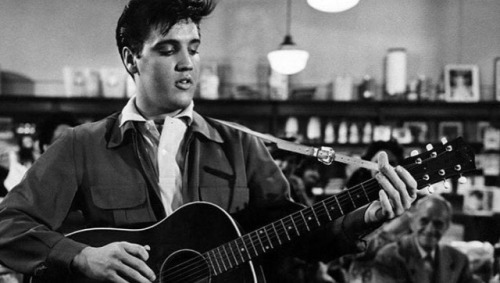
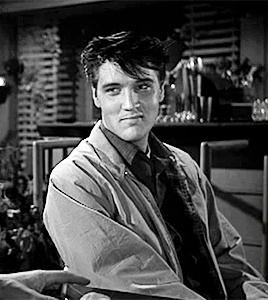
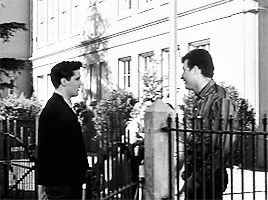

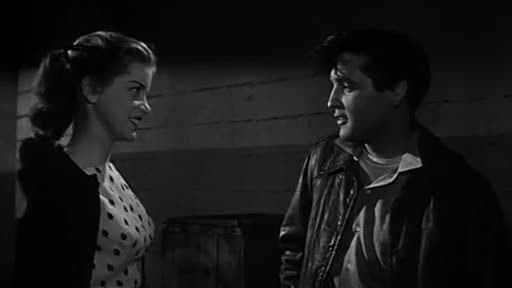
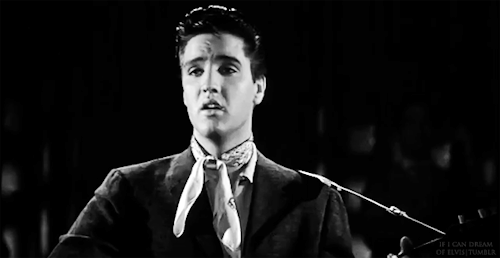
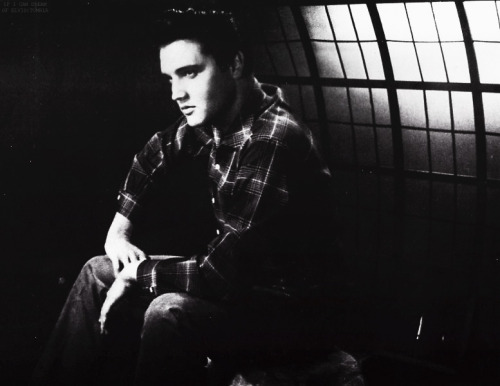
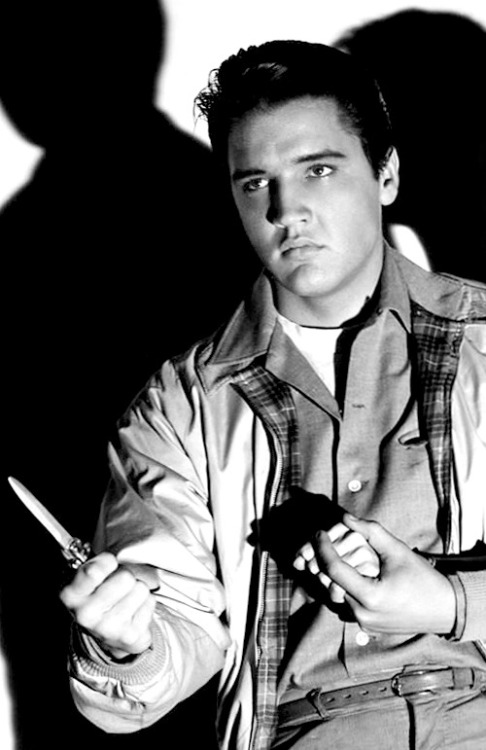
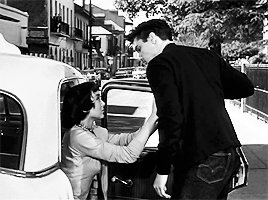
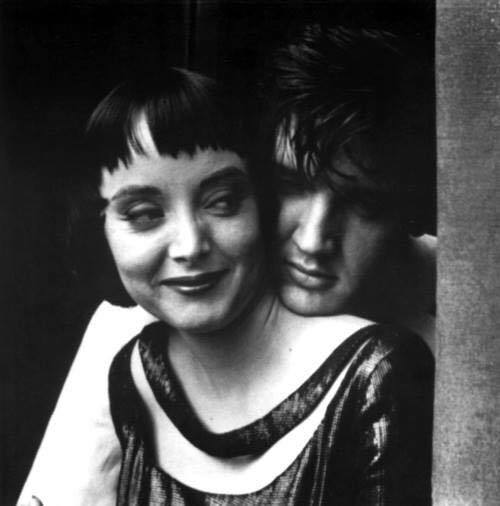

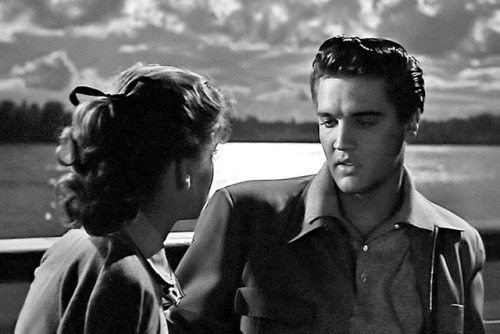
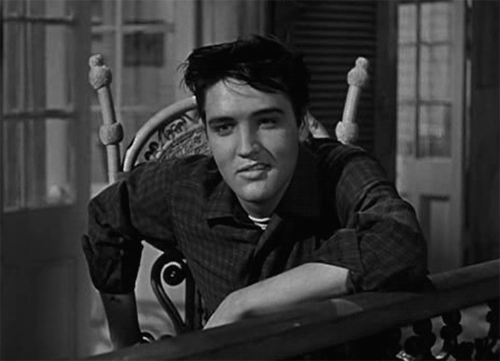
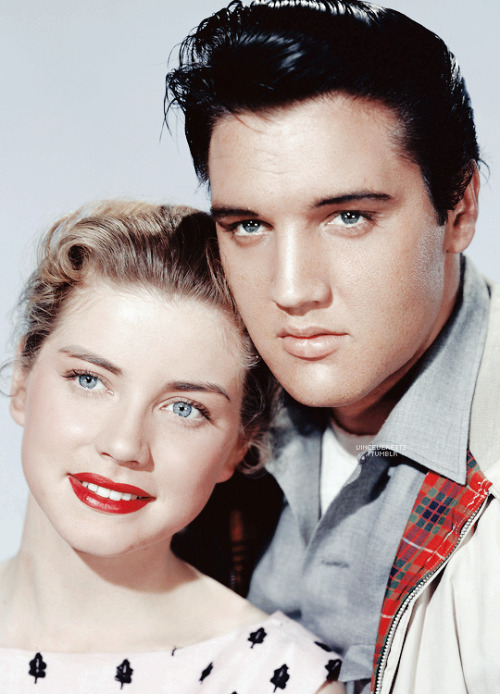

4 comments:
I loved your article Leticia!! So interesting and well-written. I like how you explain analysed the film and how you explain why it can be consider a noir. Last time I saw it was quite a long time ago and you really make me want to check it again. As a matter of fact, I didn't remember Vic Morrow was in it! I think anyone who hasn't seen the film should read your article. It will surely make them want to see the film.
I agree that this is one of Elvis best performances. He wasn't so good in Loving You, but in this one is much more credible.
Thanks so much for your participation to the blogathon!
Excellent look at another fine Curtiz film. It is a shame that Elvis didn't have more films like this in his career. Working with such a top-rate director and with such he script, he proved he could handle better stuff.
PS: I would like to recommend another couple of movies that you might consider a noir musical, Pete Kelly's Blues, and Blues in the Night. I've written about both on my blog and I'd be interested in your take on these favourites.
Hi Le - this is indeed one of Elvis’s better efforts, by the director of classics Mildred Pierce and Casablanca. Elvis really did want to become a dramatic actor, but rarely got the chance. This is quite a good film with its New Orleans feel...
Another great review...now I must see this one again!
- Chris
Hi, Lê. Virginie told me to read your post. It is excellent - and well written. Thank you. "King Creole" is the best film Elvis ever played in. I thank God for being a friend of Mother Dolores Hart.
André Pronovost
Laval, Quebec
Post a Comment